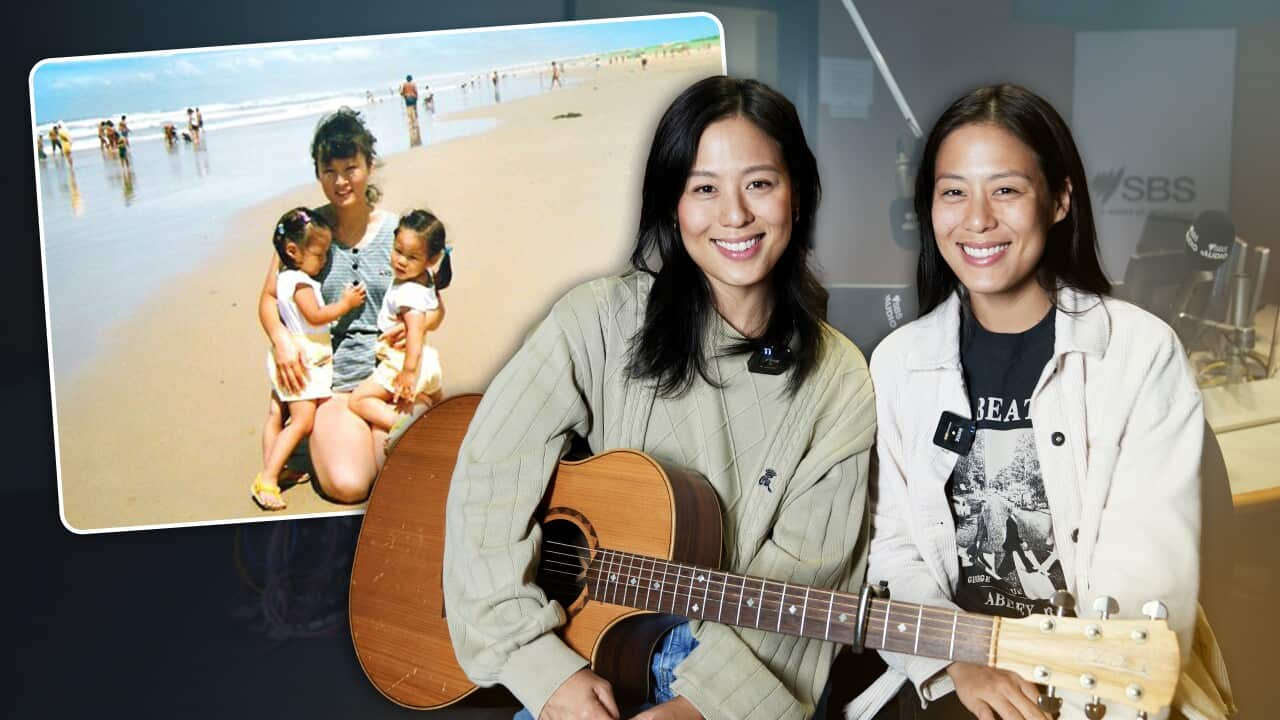Key Points
- Twin musicians Janice and Sonia, who perform as Jayesslee, lost their mother at the age of 15.
- In Australia, more than 1.2 million women lose their mothers before the age of 44.
- New research formally explores the impact of mother loss on women.
“So we would cry at home, and just cry and cry and call her name and hear no answer, and we would let ourselves feel it.”

A childhood photo of Janice and Sonia. Source: Supplied / Jayesslee
Breaking a six-year hiatus
In recent years, they have each been pursuing quiet careers as they navigate motherhood, marriage and divorce.
“So I think this is a time now where we get to show the kids how to do that, just like mum showed us,” Sonia said.

A Jayesslee concert held in 2014. Source: Supplied / Jayesslee
Impacts of mother loss
The not-for-profit charity organisation with 25,000 members recently collaborated with Deakin University to formally research the impacts of mother loss.

Danielle Snelling (right) co-founded Motherless Daughters Australia with Eloise Baker. Source: Supplied / Motherless Daughters Australia
The study of nearly 3,000 Australian women found mother loss physically and mentally impacts on the quality of adult daughters’ lives.
According to the research, 35 per cent of women were diagnosed with at least one psychiatric disorder after their mother’s death.
Depression or grief?
“This has been specifically where there are no pre- or co-existing mental health issues. That … feeds into the notion that grief is something we get over and that there’s something wrong with us,” Snelling said.

Sonia Lee of Jayesslee shared her account of losing her mother. Source: SBS
Sonia shared that after her mother passed away, she started experiencing depression.
“We came home after she passed away at the hospital, home was exactly the same the couch, the furniture, everything was just as it was, but everything had changed, and that hole, that void, I think we didn’t know how to cope with that,” Sonia said.
Impacts of mother loss in migrant or intercultural families
“It was her (my mother’s) greatest worry because our dad is a very Korean dad. He is very minimalistic with his words,” Sonia said.

Sydney-based psycologist Elizabeth Lee has been practising for the past 10 years. Source: Supplied / Elizabeth Lee
Sydney-based psychologist Elizabeth Lee likened losing a mother to losing a “best ally” who can help with navigating the developmental challenges of life.
In the case of migrant families, she said “motherless daughters could show psychological push-backs to their culture before they are able to formulate a new way of connecting with it”.

Janice and Sonia with their father and children. Source: Supplied / Jayesslee
Although the twins say they were able to build a “beautiful” father-and-daughter relationship, they missed their mother on milestones such as weddings and childbirth.
“It is a shame that we wish we could have just learned more from our mother especially with cultural complexities like dealing with in-laws. Wisdom and guidance … I think that was something that we missed out on,” Sonia said.
Coping with grief
“Speaking about it was definitely one of the first steps of healing,” Sonia said.

Janice Lee of Jayesslee shared her personal experience of mother loss. Source: SBS
Lee also advised it is important to grieve.
Instead, Snelling suggested asking about a favourite memory or requesting to see a photo, and holding space for the person’s emotions.

Janice and Sonia visit their mother’s grave with their children. Source: Supplied / Jayesslee
Janice and Sonia say their mother used to often repeat to them in Korean, “eommaga doeeobwa”, which means “when you become a mum, you will understand”.
